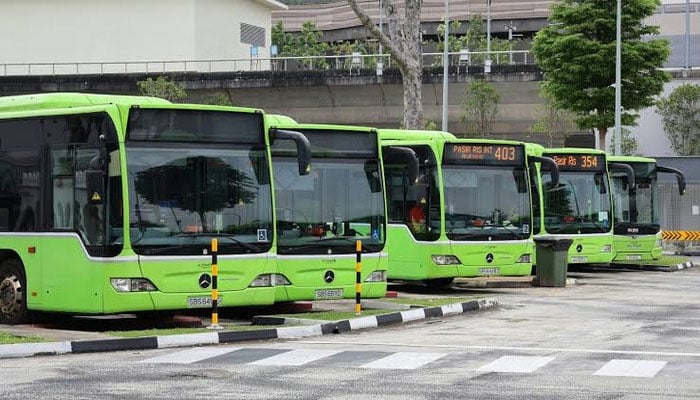
An undated image of green buses. — Unsplash
Punjab Chief Minister Maryam Nawaz Sharif has announced that 240 electric buses will be provided to 24 districts in southern Punjab as a priority, promoting EVs in the environment.
During a special meeting to review ongoing transport projects and the progress of the electric bus initiative, the decision was made to enhance the green environment and prevent pollution.
During the meeting, the CM highlighted the importance of inclusive development, stating that “villages must be brought on par with major urban centres” and that “all districts are equal.”
She directed officials to ensure the routes are finalised based on public commute patterns to facilitate efficient service.
Green bus service in Punjab
The initial phase will see the distribution of 240 electric buses across these districts. Additionally, between August and October, 500 more electric buses will be deployed in major cities, including Lahore, Faisalabad, Bahawalpur, Multan, and Rawalpindi.
By the end of the year, a total of 600 electric buses are expected to be introduced across the province, with 400 allocated to the Punjab Clean Air Programme in Sheikhupura, Nankana Sahib, Kasur, and Lahore.
Moreover, the meeting covered updates on other major projects, including the Gujranwala Bus Rapid Transit (BRT) system, which will span approximately 22 kilometres from Rahwali to Aimanabad with 28 stations and 80 feeder buses.
The feasibility of expanding the route to Gakhar Mandi was discussed, along with plans for four electric bus depots to support the system.
Furthermore, progress on Faisalabad’s Orange and Red Line transit systems was reviewed. The Red Line, covering 23.4 km with 24 stations, is projected to serve over 185,000 passengers daily, while the Orange Line, at 29 km with 21 stations, is expected to handle around 111,000 passengers per day.
The Red Line route has been extended to connect Faisalabad Industrial Estate to Salami Chowk, following directives from CM.
Earlier, the Punjab government announced that 2,000 electric vehicle (EV) charging locations will be established in the province.
This initiative aims to promote an environmentally friendly public transport strategy that reduces dependence on fuel stations.
















